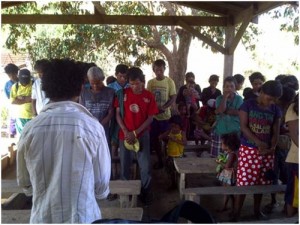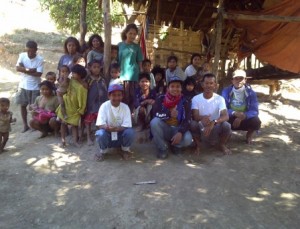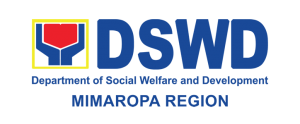There is this infectious pride that comes among people in a certain community when one of their own makes it big somehow. That somehow, if one of them becomes successful, becomes the success of the whole community. Filipinos are like that, taking pride in every one who makes a difference – just like in the case of the municipality of Mamburao, as anyone would not contest, where an initiative has made a leap to educate the indigenous people (IP).
Mamburao is one of the 11 municipalities covered by Pantawid Pamilyang Pilipino Program in the province of Occidental Mindoro. Out of the 1,847 registered grantees as of April 2014, 170 (160 male and 10 female) belong to IPs under the Mangyan ethnic group Iraya. Staying true to its figures, they are a minority but it doesn’t stop them from stepping out and making a move to make their lives better.
Since 2011, the Pantawid Pamilyang Pilipino Program in Mamburao has been providing assistance to its poorest families to cope up with their daily struggle in meeting the family’s basic needs particularly on health and education of their children. Aside from the monetary assistance, the conduct of the Family Development Session (FDS) is one of core features of the program as this provides discussions on responsible parenthood and other community related concerns.
However, with the limited number of facilitators, there is a difficulty in conducting the monthly FDS to 57 cluster groups in the municipality. It was also a challenge to the Municipal Link, the program’s frontline staff in the municipality, and the facilitator from the International Engagement for Life and Progress (IHELP), the program’s civil society organization (CSO) partner, to effectively conduct FDS among the indigenous peoples because of limited knowledge on their culture and beliefs.

Owing to these challenges, the Pantawid Pamilya staff in Mamburao together with the IHELP partners came up with the IP-to-IP approach last April 2013. With this strategy, selected IPs were trained and tapped as facilitators for FDS especially in IP communities. Volunteer-facilitators were provided in-depth knowledge on the program and technical sessions on basic facilitation skills by the municipal link and IHELP District Coordinator, Mr. Leon Falla from April to September 2013. There are now a total of 14 trained volunteer-facilitators of which seven (six male and one female) are beneficiaries of Pantawid Pamilya. These facilitators were originally affiliated to different Christian Churches in Mamburao and were tapped by IHELP District Coordinator as their volunteer-facilitators and underwent IHELP orientation seminar.
The volunteer-facilitators were assigned to different cluster groups. They have contributed to the conduct of FDS in their respective areas and have been providing inspiration to Pantawid Pamilya beneficiaries since October 2013. Topics they have facilitated include responsible parenthood and IP culture.
One of the IP volunteer-facilitators, Mr. Anghel Masangkay, was able to facilitate one session of FDS with non-IP beneficiaries. Fredelito Balquin, a non-IP member, said that his perception on IPs changed because of Mr. Masangkay. “Marami akong magagandang aral na napulot sa kanya bilang isang ama” (I have learned a lot from him), shared Mr. Balquin. According to him, the IP volunteer-facilitator served as an inspiration to him as a father. Ms. Irene T. Ramirez, a parent leader, said that she is very happy for Mr. Masangkay since despite being an IP, he was able to provide clear explanations during the FDS session. She was able to learn a lot from him especially on their topic about having good parent-children relationship.

This strategy not only answered the need for additional number of facilitators for FDS but also provided a venue for our indigenous peoples to express their potentials as leaders. This is also one way of strengthening the capabilities of our indigenous peoples with knowledge, skills and attitude on facilitating. Through the IP-to-IP approach, members of the minorities now take part in the society where they are respected and where everyone recognizes their full potential and rights as indigenous peoples is promoted.
It is true that the program is designed to provide cash assistance, but it is far way more than just the money. With what the people in Mamburao did, they turned a challenged into an opportunity to empower their own, hoping that this will provide them better discussions in the future, and better lives in turn.
![]()


